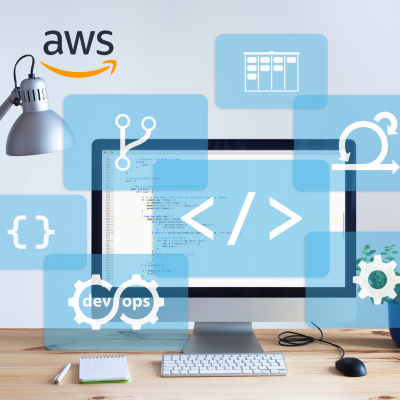Problem Statement:
In this competitive era, every business aims to provide its customers with the best product and service in no time. The company aims to create a platform where live entertainment can be affordable and more accessible. For this, the client was developing an online booking application to be hosted on AWS cloud and had the below requirements:
- Manual Deployment Process: The company relied on manual processes for code integration, testing, and deployment, leading to errors and delays in releases.
- Lack of Automation: The absence of a streamlined automated pipeline resulted in inconsistent builds and deployments across different environments.
- Collaboration Issues: Teams working on different modules faced challenges in synchronizing their work, leading to integration difficulties.
A Company has a ticket booking application with a single goal of making live events more affordable & accessible. They take out the pain of searching different sources to find tickets and put them all in the palm of your hand with the company app.
Solution Overview:
The client had 2 different environments, Staging and Production Environment. For each pipeline, unique AWS Code-Pipelines were implemented for automated deployments.
- They configured Code-Pipeline to connect with their chosen source code repository (GitHub), enabling automatic triggering of pipelines upon code commits.
- AWS Parameter Store was used to store & secure the configuration data, which will be replaced at the time of deployment based on the environment.
- Code Deploy was used to deploy the artifact to the target servers to avoid downtime during the deployment.
- Notifications were set up at the pipeline level to notify clients about new deployments and failures.
- Rollbacks were configured; the previous stable version will be deployed in case of a failed deployment.
- CloudFormation scripts were written for infrastructure to replicate the architecture in a short period.
- To enhance their pipeline, they integrated AWS services like AWS Lambda for custom actions and AWS CloudFormation for managing infrastructure changes.
Benefits delivered:
AWS Code-Pipeline is a continuous delivery service you can use to model, visualize, and automate the steps required to release your software.
Here are the benefits derived:
- Increased Efficiency: Automation led to a significant reduction in manual errors and accelerated the release cycles. The consistent pipeline improved code quality and deployment reliability.
- Enhanced Collaboration: Teams collaborated seamlessly as Code-Pipeline provided a standardized process for integrating and deploying code changes across environments.
- Cost Optimization: By leveraging AWS Code-Pipeline’s pay-as-you-go model, the company reduced operational costs associated with manual deployment efforts.
- Scalability and Flexibility: The company experienced improved scalability, easily accommodating increased workloads without compromising performance or stability.
The CloudFormation script (Infrastructure as Code) made the development and deployment process efficient, enabling faster go-to-market features.

